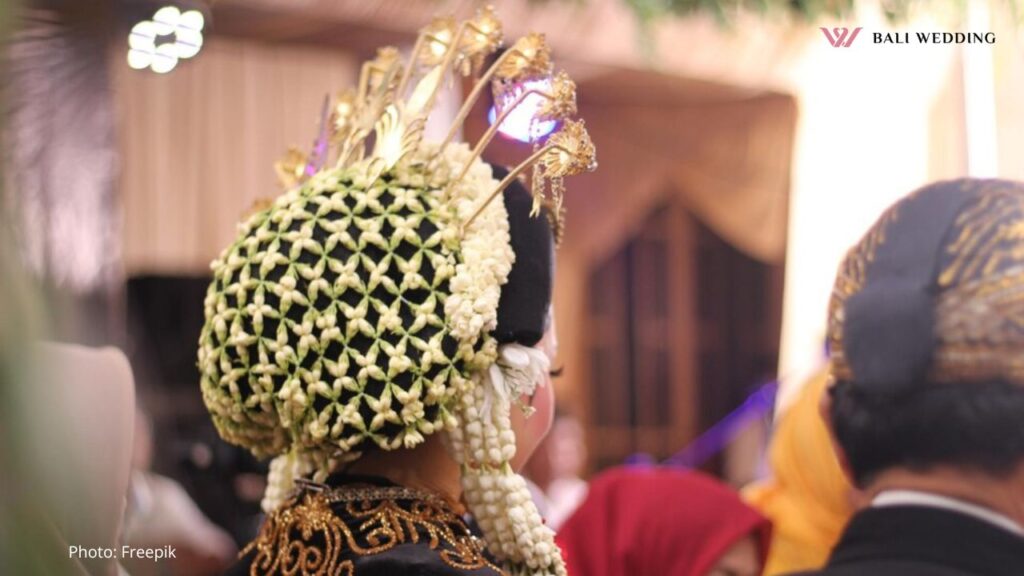May 23, 2023 • 7min read
Honoring Family Traditions on Your Big Day

Spending quality time with your family is the most precious thing in life. Healthy connections with family members are vital for our wellness and social well-being. One of the best ways to connect with family is through family traditions, which may take place during weddings.
Whether you have a tradition passed down for generations or are looking for a new one, we’re here to give you some insights. But first, let’s look at the importance of family traditions in today’s world.
Understanding Family Traditions
A family tradition is a pattern or activity of behavior that reflects your family’s interests, beliefs, and values. It represents your family unit and is considered your family culture. Once these traditions are established, families hope they will be passed down through generations.
Family doesn’t always have to be related by blood, as even a group of friends or chosen families can create traditions they want to preserve. Some family traditions may have a symbolic event. You might travel to a specific place as a celebration site, like a religious pilgrimage. Even though tradition is usually associated with religious rituals, it can be a more secular event.
It’s the time when your family commits to spending quality time together. Any family member can feel the warmth and bonding potential of these events. And this includes celebrations at weddings.
Need a Professional Wedding Planner?
"(Required)" indicates required fields
"(Required)" indicates required fields
Why are Family Traditions So Valuable?
Family traditions may differ in every country and even region. However, they all have something in common and are important for every family member.
It Offers a Sense of Comfort and Security
In the fast-paced and chaotic world, we live in today, we tend to go through life with a kind of tunnel vision. This habit can manifest as something that consumes all and causes anxiety that chips away every second of our free time.
Establishing a family tradition creates a sense of order and rhythm. Setting aside time despite everyone’s busy schedules is extremely important for nurturing these connections. This gives us a comforting feeling in the unpredictable world we live in.
Encourages Respect and Commitment
There shouldn’t be any excuse to spend time with your family. However, sticking to a date to coordinate everyone’s busy schedules may still be necessary.
A family tradition encourages respect and commitment. Families won’t likely cancel a time-honored family tradition compared to a casual lunch. These celebrations offer something to look forward to and unite every family member.
Common Traditions at Weddings
Many families worldwide share common traditions at weddings. However, only some know the origins and stories behind them. But whatever you decide, it’s essential to know the history of some of the most common wedding traditions below.
Carrying a Bridal Bouquet
Today, brides carry peonies and roses down the aisle, which was done all the way back in ancient Greece and Rome. However, it was all about herbs and spices to ward off evil spirits back then.
Queen Victoria popularized carrying their partner’s favorite flower in 1840 when she carried a bouquet of snowdrops, which was Prince Albert’s favorite flower. If you’re looking for floral bouquet inspiration, make sure to check out our blog page.
Bridesmaids in Matching Dresses
In Roman times, matching outfits were a common wedding tradition and meant good luck. They were used to confuse evil spirits that attend the wedding and attempt to curse the bride and groom. The spirits would be unsure which was the bride due to the identical dresses, which causes the spirits to leave them also and allow the couple to get married in peace.
Ways to Honor Your Family Traditions on Your Wedding Day
Many couples like to take the extra step and honor their special family members and even the entire clan on their wedding day. It can be an acknowledgment for parents or other important people during the ceremony. This includes getting them to light an altar candle or handing a bouquet to each mother.
Honoring your family traditions on your special day can mean exchanging vows in the church your parents or grandparents married in. This may also include the family crest on your invitations or having the groom’s father as a best man as a tradition. Here are other wedding traditions that honor your family:
Physical Memento
Get your mom’s wedding dress and turn it into a new veil or gown, or you can wear a generational jewelry heirloom. You can also carry your dad’s handkerchief or don his watch or cufflinks. For your bouquets, pick the flowers one of your lost loved ones has in their flower garden as your tribute. Wearing something from someone you love is also a private way to remember them on your wedding day.
Melodies of Our Loved Ones
Add meaningful words or music to your special day. You can play the particular song you learned as a child when walking down the aisle. Dedicate a dance for a family member who couldn’t make it to your wedding with one of their favorite songs. You can also include a letter your loved one wrote with their marriage advice.
Taste of Our Rich History
Get the caterer to prepare a meal that means a lot to your family. If your mom and dad are from different ethnic backgrounds and cultures, get samplings from each food station or have a rehearsal dinner with the theme of one of your family’s heritage and the wedding reception of the others. Or maybe there’s a passed-down recipe that your family can share with guests in the form of take-home wedding favors.
Related Articles
Complete Bali Wedding Packages: What’s Included and How to Choose
Discover the Beautiful Traditional Balinese Wedding Rituals
Have to decide how your dream wedding will look like?
Lorem ipsum dolor sit amet, consetetur sadipscing elitr.



